
From the Chapter

On Remembering Theology
By Lewis Ayres, Ph.D.
Professor of Catholic and Historical Theology at Durham University, U.K.
The Notre Dame theologian Cyril O’Regan speaks of some key intellectual giants of modernity as “mis-remembering” the tradition. This is, I think, a helpful way of considering the manner in which many modern figures have seen the need for a “reconstruction” of Christian doctrine, based on what turns out to be a forgetting of the very character of that which needs supposedly to be reconstructed! Such a criticism may be levelled at some of the more obvious exponents of Enlightenment, such as Kant, but also at those who have seen themselves not as simply rejecting tradition but somehow reinvigorating its heart – figures such as Hegel.

Book Review - The Acts of the Apostles: A Latin Reader by Dale L. Grote
By The Rev. Wesley Walker, STM candidate at Nashotah House
Learning grammar and vocabulary is a necessary first step in learning a new language. However, encountering a text in that language is often a whole other experience. Latin has become an unjustly neglected subject in modern education. The shift away from exposing students to classic texts along with the embrace of vernacular languages in the Roman Catholic Church has made Latin increasingly inaccessible. Yet Latin is still incredibly important.
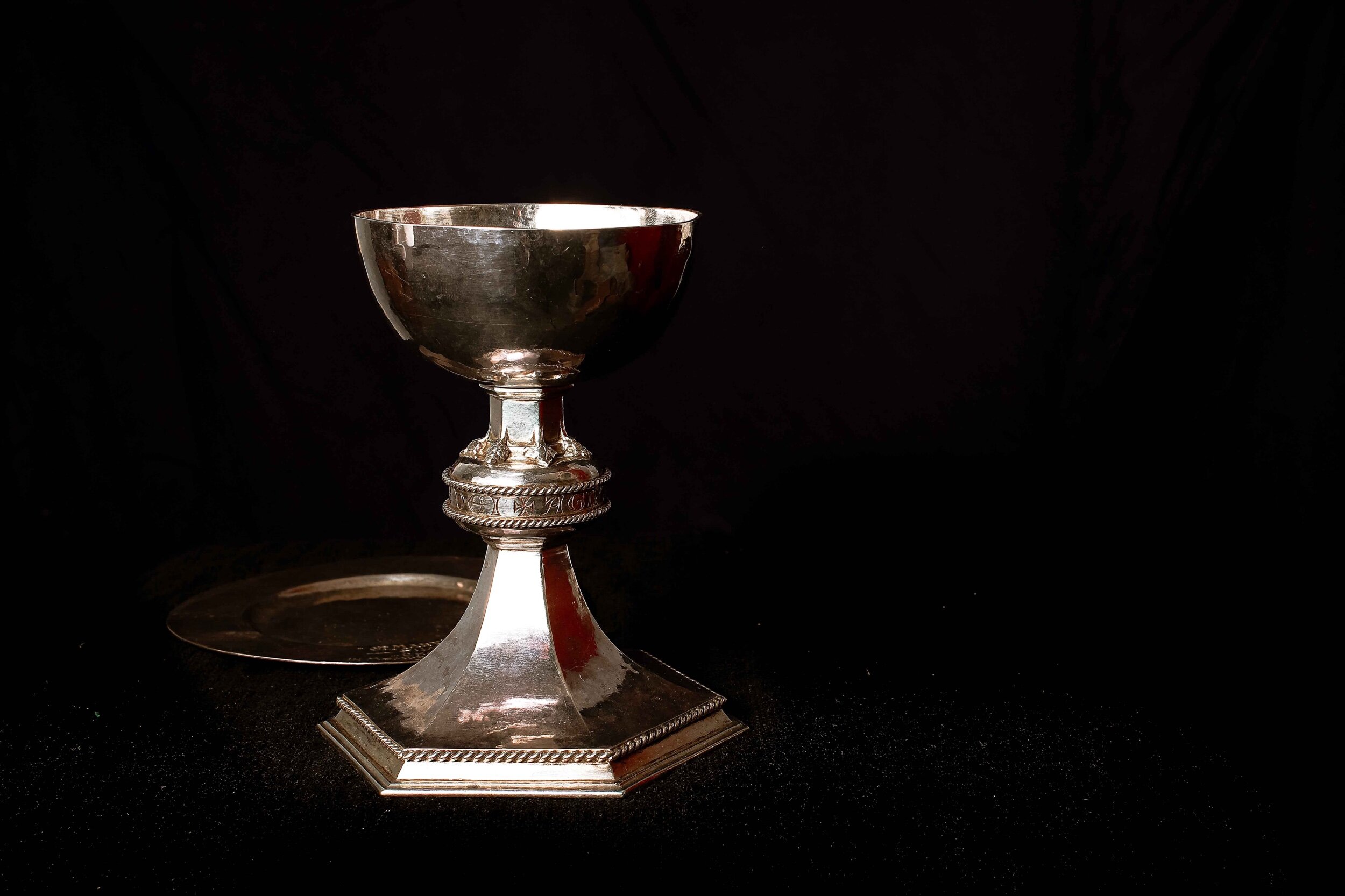
The Show Goes On
By Jonathan Jameson, ‘19
I’ve spent a large portion of the last eighteen years of my life traveling from town to town and playing songs to groups of people gathered in dimly-lit clubs. Somewhere along the way I began to develop a practice of kneeling down on stage in the shadows during the moments in my band’s set where I, the bass player, don’t have anything to play — a long intro maybe, or an acoustic song. I found that it allows me to slip out of the direct attention of the concert-goers and offers me a moment to take in the gritty beauty of the strange act that is live music.

The Anglican Theological Review (ATR) : Archbishop (Emeritus) Desmond Tutu
Call for Manuscript Proposals
The Anglican Theological Review (ATR) invites scholars in philosophy, religion, theology, law, restorative justice, Africana studies, international affairs, and other relevant disciplines to propose papers on the theology and witness of Archbishop (Emeritus) Desmond Tutu, the 10th Archbishop of the Anglican Church of Southern Africa, anti-apartheid activist, Nobel Laureate, and global human rights leader. These papers will be published in a thematic issue of the journal celebrating the life, legacy, theology, and witness of one of the great prophets and Christian witnesses of the 20th century, and a saint for the 21st century.

Upcoming Webinars: CEEP Network
Upcoming Learning Webinars from the CEEP Network. These digital workshops are offerings of the CEEP Network to the church. They are presented at no-cost, but registration is required. Topics include “The Gospel in the Wilderness: Tips for Pandemic Preaching” and “Proclaiming the Word from the Lay Ministry Perspective.”
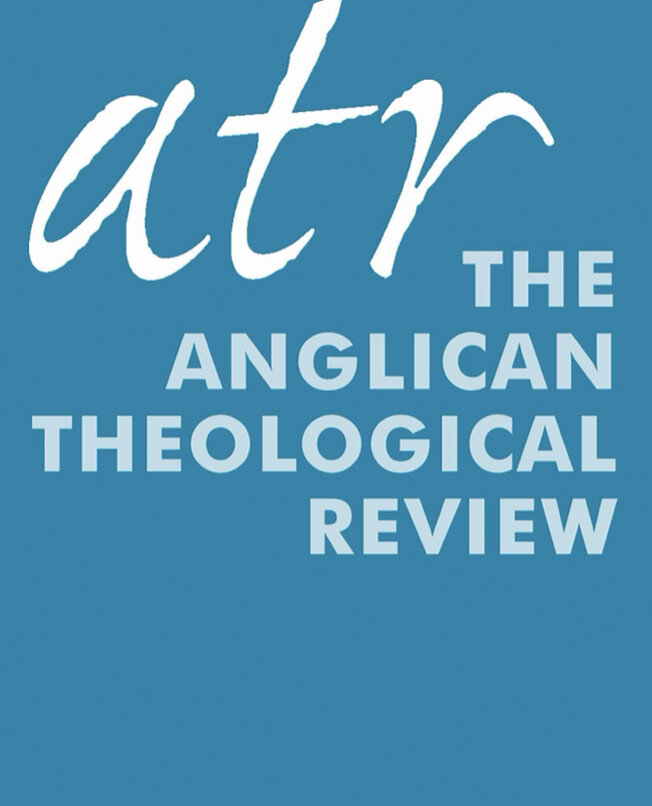
The Charles Hefling Student Essay Competition
Each year the Anglican Theological Review (ATR) holds a contest in search of an outstanding essay written by a student at a seminary of the Episcopal Church or the Anglican Church of Canada. The winner of the Charles Hefling Student Essay Competition receives a prize of seven hundred and fifty dollars and the ATR publishes their essay. More details and information regarding deadline here and at ATR’s web site.
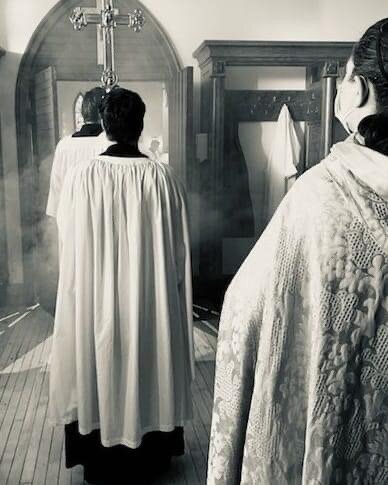
The Way of Love: Worship
By The Rev. Matthew S.C. Olver, Ph.D.
Worship is one of those ubiquitous aspects of the Christian life that simultaneously unites Christians —who would question the imperative to worship? — and divides them. The different answers to the question, How should we worship?, are always swirling into the wreckage of Christian division. No doubt even the title of this series, given that it comes from Michael Curry and the Episcopal Church, has produced conflicting responses among various readers, along predictable lines. What do you mean by “love”?
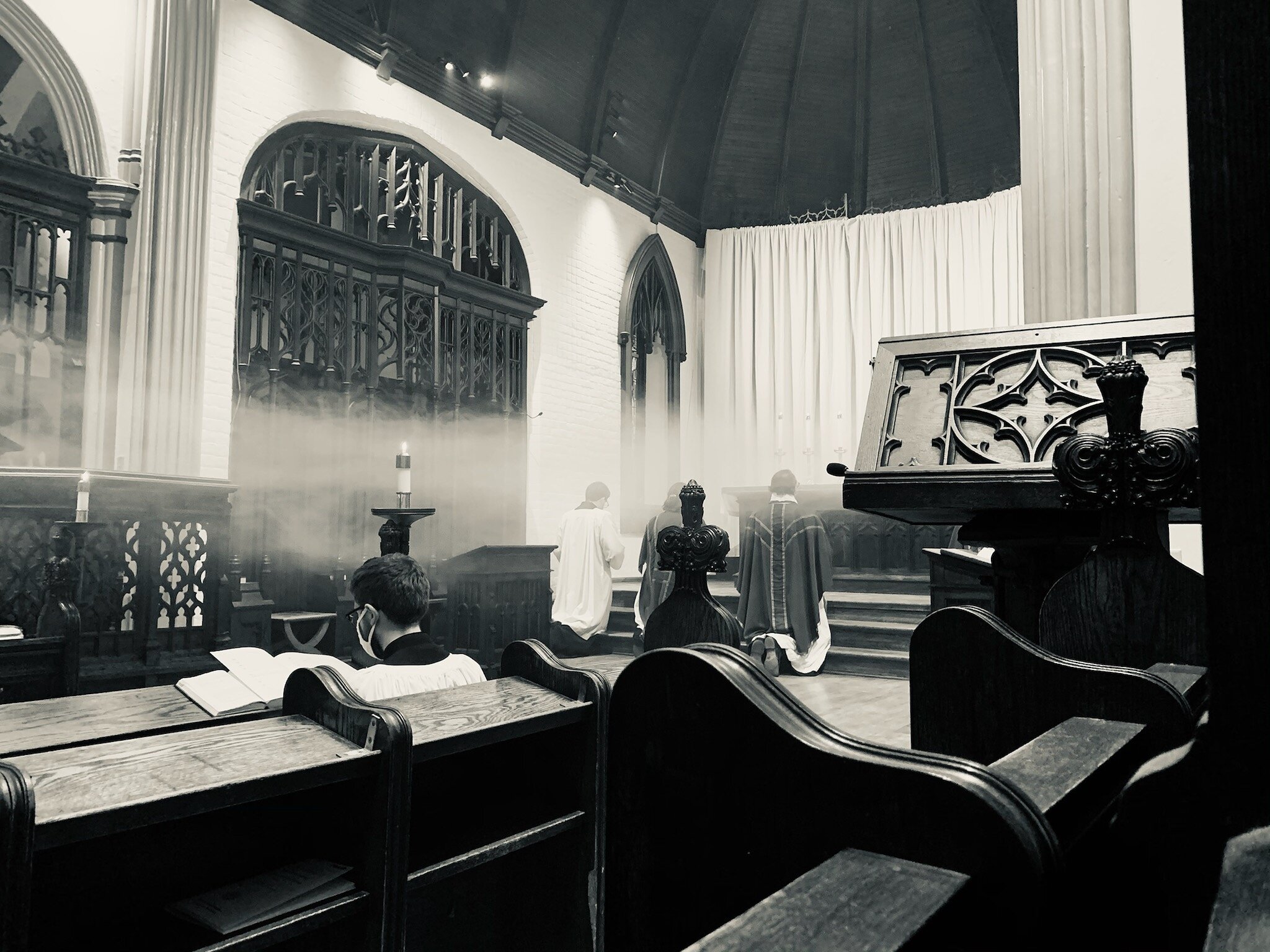
Aquinas as Anglican
By Christopher Wells, Ph.D.
Hailing from an influential family in southern Italy, Thomas Aquinas encountered Aristotle and broad, inter-cultural currents in Naples, from age 13, which led to his joining the nascent Dominican order at age 18.
For the next 30 years, until his untimely death at age 48, Aquinas studied and taught theology, mostly at universities in Paris and Rome, where he rose to prominence as a great scholar, teacher, and faithful servant of the church. He did not speak English, or Middle English, and he never traveled to England. He would not have known of the English people nor of England as the place to which the great missionary-evangelist St. Augustine of Canterbury was sent by Pope Gregory in 597.

Anglo-Catholicism & the Common Good
By Elisabeth Rain Kincaid, JD, PhD, Assistant Professor of Ethics and Moral Theology
In this abbreviated paper, Dr. Kincaid’s argues that the Anglo-Catholic understanding of the common good is a commitment to create the conditions in which human flourishing is possible because we and others are being formed into people who are capable of entering into friendship with God and friendship with others. This commitment extends to all but contains a special emphasis—a preferential option—for the poor.
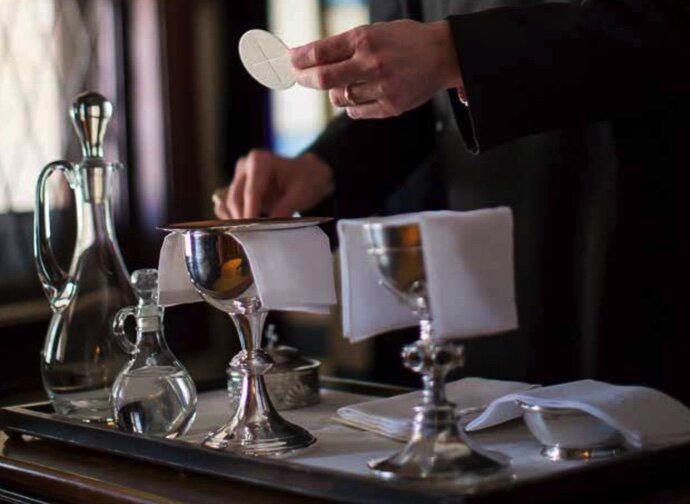
Pathway in Lent
By Jane Burkett, ‘13
The order in which the commandments are presented is important. First of all, God has the right to set these rules for the Israelites because he is the one who rescued them from slavery in Egypt; he has redeemed them, and so they are his. Second, the commandments about our obligation to God come before those to our neighbor, because how we treat our neighbor is based in God’s creation and ordering of the world. Every human being is made in the image of God, which means that how I treat my neighbor is intimately connected to my relationship with God.

And the sun darkened: New York Polyphony
New York Polyphony today announced the release of And the Sun Darkened, a new album out Friday, March 5, 2021 on BIS Records (BIS-2277 SACD). The album marks a return to form for the ensemble, a program of new and ancient works organized around texts appropriate for Passiontide, the last two weeks of the Lenten season. Dr. Geoffrey Williams, Assistant Professor of Church Music and Director of Chapel Music at Nashotah House, is founder and artistic director of New York Polyphony.
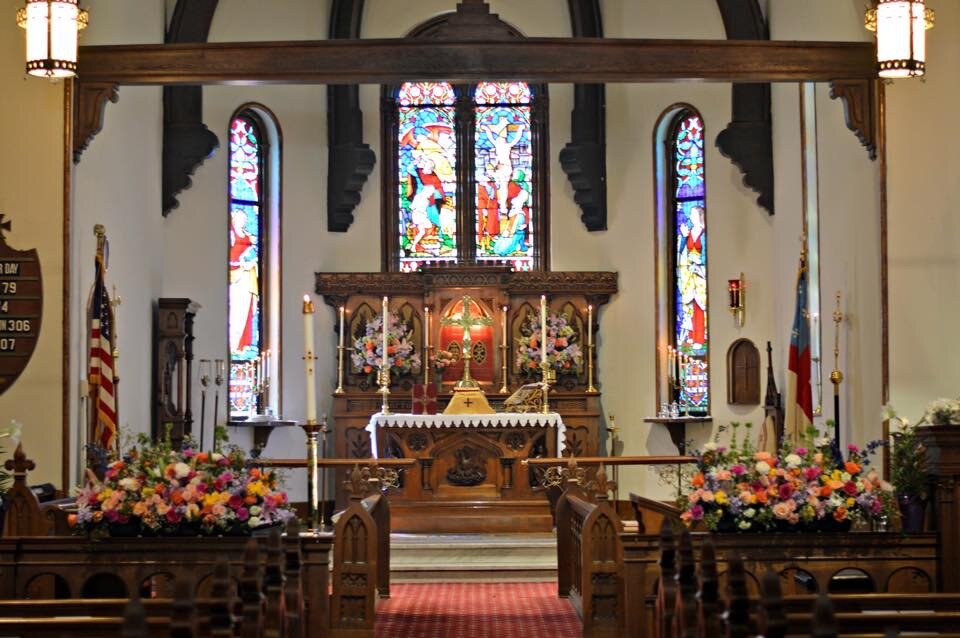
Tips on Preaching from a Priest in the Pew
By The Rev. Charles Hoffacker, ’82
His professor continued, “Frozen food is full of nutritive value, but no one can eat it until it is cooked and seasoned. Some of the theology in your sermon is like frozen food. It is soundly orthodox but not prepared well enough for your hearers to benefit.” The student went on to use this criterion to assess his own preaching throughout his long ministry. Upon composing a sermon, he would ask himself, ”Frozen food?”

Lenses on Lent
St. John’s in the Village, New York, is hosting an online Lenten series focusing on particular perspectives on the Forty Days. They invite you to participate online each Sunday. Featured preachers include Dr. Garwood Anderson, Provost and Professor of Greek and New Testament at Nashotah House; The Rev. Professor Paul F. Bradshaw, Professor Emeritus, Liturgy at Notre Dame; and Dr. Lucy Wooding, Langford Fellow and Tutor in History at Lincoln College, Oxford.
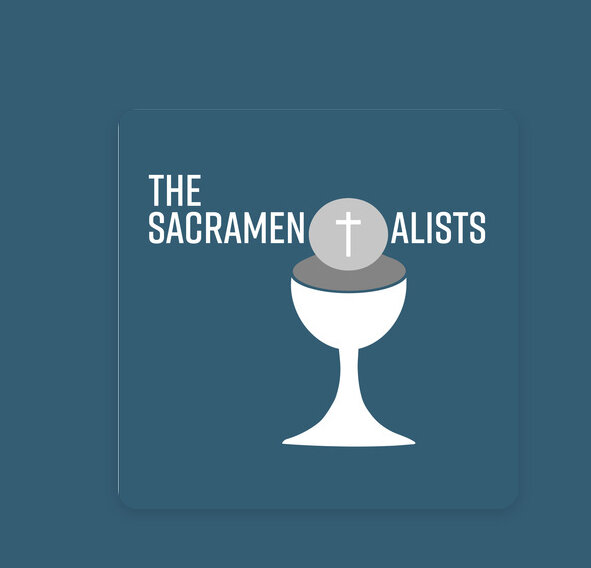
The Sacramentalists: A Podcast Interview with Dr. Elisabeth Kincaid
On this podcast from The Sacramentalists, Fr. Myles Hixson and Fr. Wesley Walker talk with Dr. Elisabeth Kincaid, Professor of Ethics and Moral Theology at Nashotah House, about the basics of Catholic Social Teaching. The Sacramentalists is a podcast where the ancient Christian faith is brought to bear on issues prevalent in modern culture, focusing on how theology intersects with our daily lives. The hosts are The Rev. Wesley Walker, St. Paul's Anglican Church, Annapolis, Maryland, and The Rev. Myles Hixson, Holy Cross Anglican Church in Knoxville, Tennessee. Fr. Walker is currently pursuing the Master’s in Sacred Theology (STM) at Nashotah House.
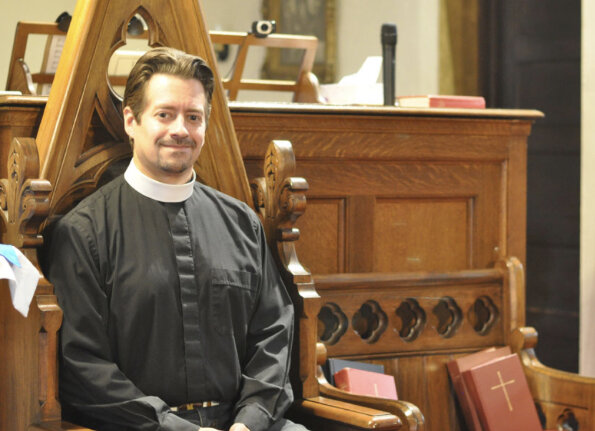
Rodeo Rector at Saranac Lake, New York
The following is from Amy Scattergood, a reporter for Adirondack Daily Enterprise, located in Saranac Lake, New York. Here she interviews the Rev. Andrew Cruz Lillegard (‘18) on his call as Rector to Saranac Lake’s oldest church, the Church of St. Luke the Beloved Physician (consecrated 1879). Having a priest for the first time in three years, St. Luke’s restarted services in August 2020, after the COVID shutdown. “Vocation is not a job,” said Fr. Cruz Lillegard. “It’s a calling, and it means that when my phone rings, I pick it up. Ministry is not a burden; it’s a privilege. To be Christ-like, to work towards that ideal in this life where nothing is ideal, is what we do when we’re doing what we’re supposed to be doing.”

Praying the Parables in Lent
By The Rev. Canon Brien Koehler, SSC, ’ 76
The season of self-examination, repentance, and resolve is upon us again; and Lenten rules are being formed with energy and purpose all across the Church. Self-examination is one of the marks of a solid Lenten rule, and guides to self-examination are abundant. Some pose questions based on the Ten Commandments. Others use a framework built on the Seven Deadly Sins. And there are still more variations in devotional books that have proven useful for generations, if not centuries.

Angels in the Architecture
By Micah Hogan, Seminarian at Nashotah House
We could thus describe Eisenman’s as an architecture of Lent. Eisenman’s architecture represents the figurative sign of the cross which adorns the prayers of the faithful, the repetition of the once-for-all exposure for the principalities and powers. Everything indeed is not all right, and Eisenman forces us to confront this, which is why he was the ideal architect to design the memorial to the murdered Jews of Europe.
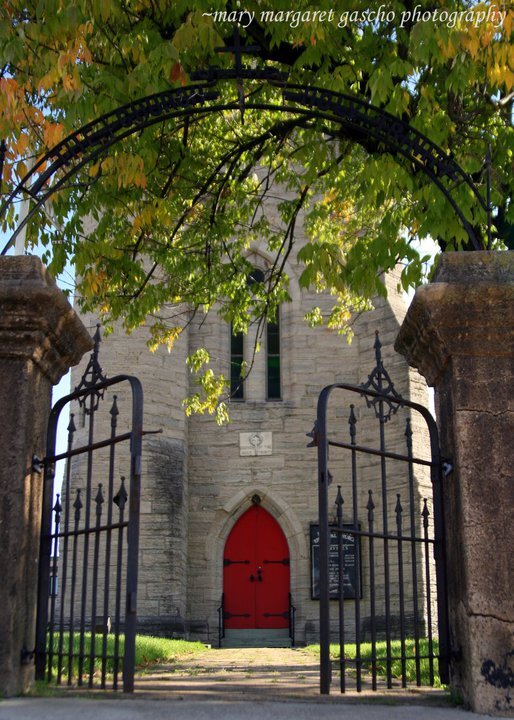
The Church in The Yard
Mission is the reason for and also the manifestation of formation. This ethos serves as the cornerstone of Nashotah House’s discipline of daily prayer, study, and work - the hallmark those who leave here prepared for the ministries to which they’ve been called. Fr. Bill Dennler’s ministry at the Church of the Holy Trinity in Nashville, Tennessee, manifests just such a formation.

The Lenten Presumption
By Hans Boersma, Ph.D.
Over the next 40 days, we join our Lord on the via dolorosa, the road of suffering, which culminates in his agonizing death on the Cross. We join him in fasting, in prayer, and in almsgiving.
But what if Jesus doesn’t want us to join him? What if he refuses our Lenten sacrifices and says to us: “I will take no bull-calf from your stalls, nor he-goats out of your pens” (Ps. 50:9)? All too easily, the thought may creep in that Jesus ought to be pleased that I join him in my fastidious Lenten endeavors. Let’s call this temptation the Lenten presumption.

Lent with The Fathers: A Review
A Review by The Rev. Ben Jeffries, ’14
The Oxford Movement was intellectually underwritten by a ressourcement of the Church Fathers. Edward Pusey et al. edited a monumental Library of the Fathers that brought many printed works into English for the first time. This Library was a revelation for many — showcasing the vigor and seriousness in both life and dogma that was emblematic of the early centuries of our church and blew fresh wind into the sails of Victorian discipleship. At this time, however, accessing the Fathers still required a decent amount of learning, means, and time for reading. Therefore, a number of smaller, more accessible selections were made in the years that followed.
